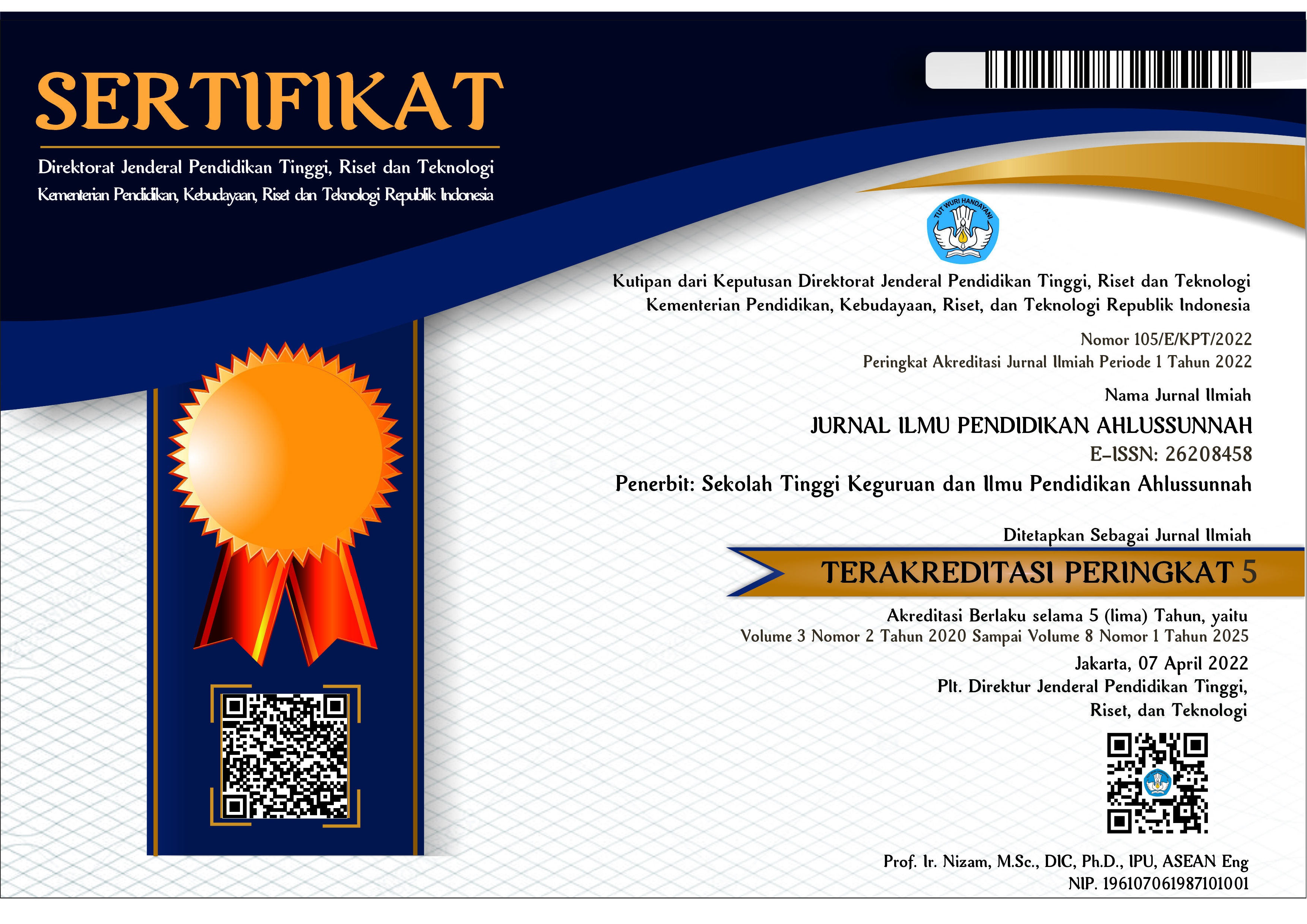THE INFLUENCE OF LEARNING METHODS (OUTDOOR LEARNING) ON SOCIAL RESPONSIBILITY LEARNING OUTCOMES IN MARITIME ENVIRONMENTAL CONCERNING POLTEKPEL SUMBAR
PENGARUH METODE PEMBELAJARAN (OUTDOOR LEARNING) TERHADAP HASIL PEMBELAJARAN TANGGUNGJAWAB SOSIAL DALAM KEPEDULIAN LINGKUNGAN MARITIM POLTEKPEL SUMBAR
Abstract
The purpose of this research is to see how outdoor learning impacts the learning outcomes of social responsibility in environmental care among students of the Nautical Study Program at the West Sumatra Shipping Polytechnic. The research was conducted using a pre-test and post-test design. The research instrument is a test that evaluates the learning outcomes of social responsibility, covering cognitive, affective, and psychomotor aspects. The content validity test of this learning outcome test instrument received a high validity score when evaluated for content validity by experts at a maritime institution, with a content validity score of 3.7 and an A category rating. The results of the normality test using the Wilcoxon test show that in the experimental group, all participants experienced an increase in post-test scores compared to pre-test scores, with an average of 15.50 and a total of 465, indicating a significant change. In the control group, 27 participants experienced an increase in scores, but only 3 participants had the same score between the pre-test and post-test, with an average of 14.00 and a total of 378. The output of the statistical test shows that the Asymp. Sig. (2-tailed) value is 0.000, which is less than 0.05, allowing us to conclude that the hypothesis is accepted, meaning there is a difference in learning outcomes using the outdoor learning method between the Pre-test and Post-test. The effectiveness test of the instrument shows that the test questions have a balanced level of difficulty and adequate discriminatory power. The instrument is effective because the N-Gain percentage is 73.54%, and the reliability test using the pre-test and post-test methods and inter-rater reliability found a t-value of -1.7162, indicating good consistency. The research results show that outdoor learning significantly improves the learning outcomes of social responsibility towards the maritime environment for Nautical Studies students.
References
Acar, H. (2014). Learning Environments for Children in Outdoor Spaces. Procedia - Social and Behavioral Sciences, 141, 846–853. https://doi.org/10.1016/j.sbspro.2014.05.147
Addamo, A. M., La Notte, A., & Guillen, J. (2024). Status of mapping, assessment and valuation of marine ecosystem services in the European seas. Ecosystem Services, 67(May), 101631. https://doi.org/10.1016/j.ecoser.2024.101631
Bosch, N. E., Navarro Mayoral, S., Espino, F., Otero-Ferrer, F., Haroun, R., & Tuya, F. (2024). Process-based metrics inform sustainable marine management after a catastrophic natural event. Ecological Indicators, 167(October), 112714. https://doi.org/10.1016/j.ecolind.2024.112714
Brun, V., Madarcos, J. R. V., Celis, A. J., Creencia, L. A., Gurney, G. G., & Claudet, J. (2024). Assessing stakeholder perceptions to guide social and ecological fit of marine protected areas. IScience, 27(10), 110952. https://doi.org/10.1016/j.isci.2024.110952
Cadman, R., MacDonald, B. H., & Soomai, S. S. (2020). Sharing victories: Characteristics of collaborative strategies of environmental non-governmental organizations in Canadian marine conservation. Marine Policy, 115, 103862. https://doi.org/10.1016/j.marpol.2020.103862
Campbell, M. L., & Hewitt, C. L. (2025). A holistic marine biosecurity risk framework that is inclusive of social, cultural, economic and ecological values. Marine Policy, 1















